Israel
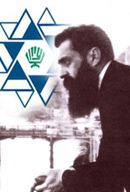 World Zionist Congress
World Zionist CongressTuesday, June 15, 2010 by Elliot Jager | Jewish Ideas Daily » Daily Features
The 36th congress of the World Zionist Organization (WZO) opens in Jerusalem today, bringing together hundreds of delegates drawn from political parties in Israel's Knesset as well as from Zionist and Jewish organizations in the Diaspora. On the agenda are subjects ranging from the condition of Zionism in Israeli society and worldwide, to settlement in Judea and Samaria, to Israel-Diaspora relations. Unfortunately, no matter how stimulating the speeches may be, no one anticipates any fateful decisions or even any serious grappling with existential questions.
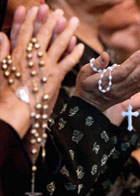 Christianity in the Middle East
Christianity in the Middle EastWednesday, June 9, 2010 | Jewish Ideas Daily » Daily Features
Pope Benedict XVI's visit to Cyprus on Sunday was marred by events that cast their own, baleful light on the purpose of his mission: to unveil a Vatican position paper on the deteriorating condition of Christianity in the Middle East. Hours before his arrival, one of the document's authors, Bishop Luigi Padovese, the apostolic vicar of Anatolia, was murdered by his "mentally unstable" driver. Padovese had only recently met with Turkish authorities to discuss the problems of that country's tiny Christian minority—and had previously extended Christian forgiveness to a Muslim youth who in 2006 murdered a Catholic priest. Three more...
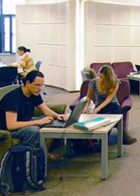 A Zionist Citadel?
A Zionist Citadel?Tuesday, June 8, 2010 | Jewish Ideas Daily » Daily Features
The annual meeting of the board of governors of the Hebrew University of Jerusalem takes place this week in Israel's capital. Not unlike the state that it preceded into existence, the university, opened 85 years ago on Mount Scopus in northeast Jerusalem, is in the throes of crisis.
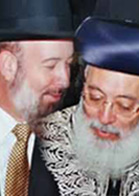 The Chief Rabbinate
The Chief RabbinateMonday, June 7, 2010 | Jewish Ideas Daily » Daily Features
On May 23, Israel's chief rabbinate issued new regulations requiring prospective couples whose parents had been married by someone other than a rabbinate-approved rabbi to apply, along with their mothers, for a full inquiry into their Jewishness. The regulations provide for inquiries into the Jewishness of other couples as well. In the meantime, making deft use of its authority over conversions to Judaism, the rabbinate has acted to delegitimize other rabbis, in particular from the Modern Orthodox and Religious Zionist movements, as a whole. Founded as a body that would help unify the modern Jewish state, the rabbinate (Hebrew: rabbanut) has...
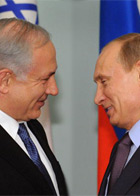 Russia and Israel
Russia and IsraelTuesday, June 1, 2010 | Jewish Ideas Daily » Daily Features
Nineteen years after the collapse of the Soviet Union and the Communist empire, Russia has reconstituted its role as a significant player in the Middle East and Islamic world. What does it want? Mainly, influence, stability, and the opportunity to make a great deal of money selling weapons. While not driven by ideology, as in the cold war, these goals are mostly out of sync with Israel's.
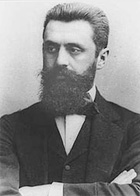 The Impresario of Zionism
The Impresario of ZionismWednesday, April 28, 2010 | Jewish Ideas Daily » Daily Features
Theodor Herzl, father of modern political Zionism, was born in Budapest 150 years ago next Sunday, May 2. He died at age forty-four in Vienna, four-and-a-half decades before the establishment of the state of Israel. Herzl came into maturity with no particular Jewish learning, no Hebrew, and scant ties to his community. Yet with his top hat, white gloves, and tails, this broadminded Central European journalist with a utopian streak came to be the foremost revolutionary of the modern Jewish world. The basics outlines of Herzl's life are fairly well known. Born into a comfortable, assimilated family, he considered law but settled...
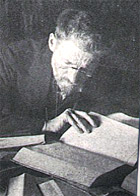 Speaking of Hebrew
Speaking of HebrewMonday, April 26, 2010 | Jewish Ideas Daily » Daily Features
Over time, successful social transformations lose their capacity to amaze. So it is that we forget just how astounding was the modern revival of Hebrew as a language suitable for all aspects of life. Of course, Hebrew never really died; throughout history it was the written language of scholarship and religious thought, and the spoken and sung language of prayer. This rich and multi-layered legacy was mined by the Zionist writers, linguists, and educators who over decades would painstakingly bring forth the modern Hebrew language. Among the questions they had to settle was how, exactly, to pronounce it. The decision was to...
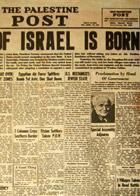 1948: Palestine Betrayed
1948: Palestine BetrayedTuesday, April 20, 2010 | Jewish Ideas Daily » Daily Features
Zionist Jews were not interlopers in Palestine. The creation of the Jewish state was not an "original sin" foisted upon the Arab world. The tragic flight of the Palestinian refugees was overwhelmingly not the fault of the Zionists. To the contrary, at every momentous junction the Zionists opted for compromise and peace, the Arabs for intransigence and belligerency. This, in summary, is how most people once understood the Arab-Israel conflict. Today, however, as Israel marks its Independence Day, an entire generation has come to maturity believing a diametrically opposite "narrative": namely, that the troubles persist because of West Bank settlements, because...
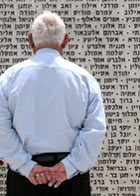 Remembering the Fallen, and Why They Fell
Remembering the Fallen, and Why They FellMonday, April 19, 2010 | Jewish Ideas Daily » Daily Features
The ten days from last week's Holocaust Remembrance Day (Yom Hashoah) through today's Memorial Day (Yom Hazikaron) to tomorrow's Independence Day (Yom Ha'atzma'ut) constitute, for Israelis and many Jews worldwide, a passage in which the theme of death and loss plays an inevitably central role. The evolution of that theme over the years has come to be reflected in poetic texts and liturgies whose meaning has itself evolved in Israeli and Jewish consciousness. Perhaps the most famous of these texts is Magash Hakesef ("The Silver Platter") by the poet Natan Alterman, the centennial of whose birth is being marked this year....
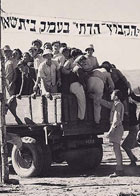 The Religious Kibbutz
The Religious KibbutzThursday, April 15, 2010 | Jewish Ideas Daily » Daily Features
Alongside the centennial of the kibbutz movement, another, humbler jubilee is being marked: the 80th anniversary of Ha-kibbutz Ha-dati, the religious-kibbutz movement. A unique blend of nationalism, socialism, and religion, it has generated a legacy whose significance reaches well beyond its sixteen member communes. The kibbutz movement as a whole was, from its inception, deeply committed to religion—that is, the Tolstoyan religion of labor. The religious kibbutzim strove to wed this new religion with the old one, and thus to remake both. The aim was a return to the land that would at once revitalize the ancient moral-religious energies of the Torah and issue a...
Editors' Picks
Can a Small Country Have a Big Heart? Shmuel Rosner, New York Times. Searches and arrests, erecting of border fences, bolstering of guard units, kicking out poor migrants—all these scenes will now become a chapter in Jewish history. Israel has no other choice.
The More Deceived Alex Joffe, Middle East Quarterly. Palestinian rhetoric is not merely based on lies; it does not consider truth to be a value. And Western critical filters are more eroded than ever.
Memories of the Machalniks Andrew Esensten, Haaretz. Praised by Ben-Gurion as the Diaspora's most important contribution to the nascent state, the overseas volunteers in the War of Independence finally have an exhibit in their honor.
The Idealist and the Pragmatist Daniel Bouskila, Institute for Jewish Ideas. Two of Israel's Sephardic chief rabbis, Benzion Meir Hai Uziel and Ovadia Yosef, had strikingly different views about how Sephardic traditions were to meet Ashkenazic ones in Israel.
Mayim Mayim Civil Administration of Judea and Samaria. Fact sheet on water in the West Bank: accessibility, contamination, sustainability, and how the joint resource is being managed between Israelis and Palestinians. (PDF)
Our Maronite Minority Eli Balshan, Times of Israel. Inspired in part by Eliezer Ben Yehuda, two Maronite brothers have taken it upon themselves to revitalize their ancestral Aramaic into a modern, living language.
Food for Peace Kenneth M. Quinn, Huffington Post. Daniel Hillel's micro-irrigation technology, which turns desert into farmland, has earned him the World Food Prize—and the gratitude of people across the Middle East.
Wagner the Dog Jonathan S. Tobin, Contentions. What does it say about Jewish sensibilities that a month after Tel Aviv University hosted a "Nakba Day" commemoration, it judged a concert of Wagner's music to be beyond the pale?
Israelis, Learn Arabic! Yaron Friedman, Ynet. Though tiny Israel is surrounded by more than 200 million Arabic speakers, its government has failed to treat Arabic studies with the appropriate seriousness.
Fleshpots and Ice Cream Pints Elli Fischer, Times of Israel. From olim, one hears an American—or is it an atavistic?—yearning for quality and convenience.

